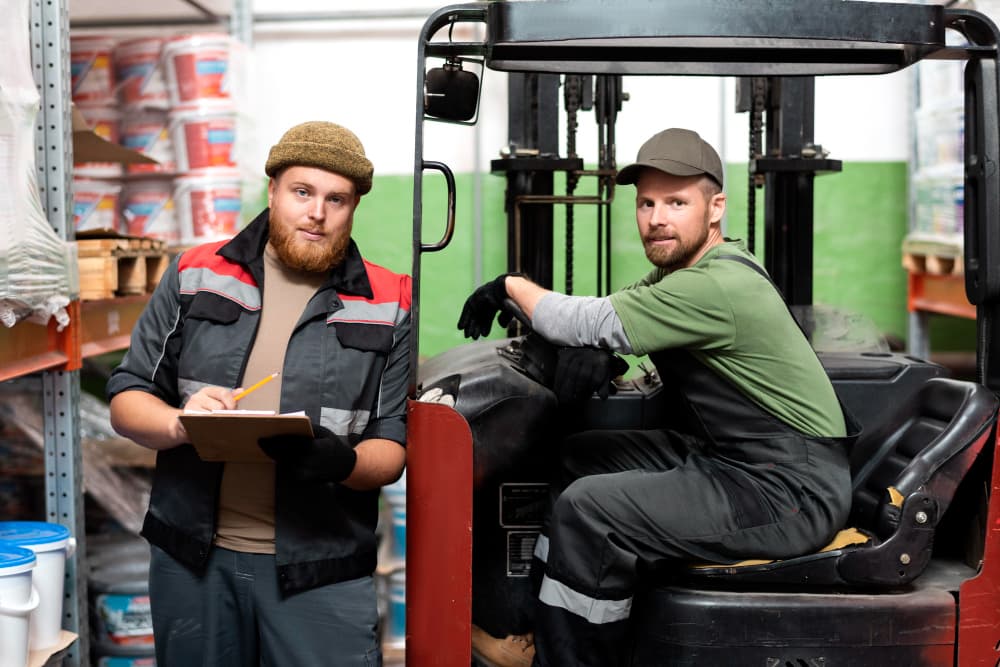
If your business relies on forklifts, then you already know how much they contribute to day-to-day operations. From moving bulky materials to loading and unloading deliveries, these machines are essential across warehouses, factories, construction sites—you name it.
But there’s a side to forklift use that often doesn’t get the attention it deserves: safety. A forklift is powerful equipment, and if it’s in the hands of someone untrained, it can go from useful to dangerous in seconds. That’s exactly why forklift training and forklift certification are not just recommended—they’re vital.
Let’s talk about what these programs actually involve, why they matter so much, and how skipping them could cost more than you think.
Forklifts Aren’t Just Trucks with Forks

To the untrained eye, a forklift might look like a glorified golf cart with lifting arms. In reality, it’s a precision machine designed to handle heavy loads in complex environments. It’s engineered to pivot in tight spaces, raise goods to height, and move weight that no human could safely.
But this strength comes with risk. Even minor errors—like turning too fast with a raised load or backing up without visibility—can result in property damage or injury. It’s not about blaming the machine; it’s about understanding the responsibility that comes with using one.
A certified forklift operator is trained not only to maneuver the machine but to anticipate problems before they happen. They learn how to judge the weight and stability of a load, maintain balance on ramps, and avoid tipping—even in unpredictable conditions.
Certification Isn’t Red Tape. It’s Insurance.
For some employers, forklift certification feels like another bureaucratic step in a long list of compliance rules. But it’s much more than that.
Certified operators reduce your risk as a business owner. Fewer accidents mean fewer delays, less downtime, and lower insurance claims. In some industries, insurance companies even offer better rates if your team is properly certified and trained. That’s how much of a difference it makes.
It also speaks volumes to your team. When you invest in forklift training, you’re telling your staff, “Your safety matters. You’re worth training well.”
So, What Does Forklift Training Teach?
Let’s clear up a common misconception: forklift training isn’t just about learning how to use the controls.
It starts with the basics—understanding how the machine operates, what its load limits are, and what safety features exist. But it quickly gets more advanced. Trainees learn:
- How to read load charts
- How to inspect the forklift before each shift
- How to react to mechanical issues on the floor
- How to operate safely when visibility is low or the ground is uneven
Hands-on training is the most valuable part. It’s one thing to talk about balance points and center of gravity—it’s another to feel what it’s like when you’re lifting a full pallet on a tight turn in a real warehouse.
At RTITB India, we design our forklift training programs with these realities in mind. They’re not one-size-fits-all—they’re practical, site-specific, and focused on preparing operators for real-life situations.
The Risk of Skipping Training
Let’s say you put someone on a forklift who isn’t certified. Maybe they’ve “driven one before,” or maybe they learned from a colleague. Sure, they might get through the shift without a problem—but what happens the day they misjudge a load and it tips? Or when they hit a rack corner because they didn’t check their blind spot?
It only takes one mistake to cause serious injury, equipment damage, or even legal trouble. And if that operator wasn’t certified? It’s on the company. That’s the kind of liability that no business can afford.
Proper forklift certification means your team is trained, tested, and recognized as capable operators. That recognition protects you as much as it protects them.
Refresher Courses Keep Skills Sharp
Even experienced forklift drivers can fall into bad habits. That’s why training shouldn’t be treated as a one-time event. Regulations change. Equipment evolves. And sometimes people just forget things.
Offering refresher sessions every 12–18 months helps keep safety top of mind. These sessions don’t need to be long or complicated. A half-day reminder of best practices can go a long way in preventing incidents. It’s also a great time to introduce new policies or update teams on equipment changes.
A Safer Workplace Is a More Productive One
We’ve seen it across industries—when forklift operators are trained, certified, and confident, the whole operation runs smoother. There are fewer delays, fewer damaged goods, and far fewer close calls.
The upfront time and cost of proper forklift training? Minimal. The long-term value? Massive.
When safety becomes part of your workplace culture—not just a box you check—you build a team that looks out for one another, takes pride in doing the job right, and works more efficiently every single day.
Final Thoughts
There’s no shortcut to forklift safety. No matter how busy your site is or how short-staffed you feel, cutting corners on training isn’t worth the risk. Give your team the skills they need to work confidently and safely.
At RTITB India, we offer forklift certification programs designed to meet your site’s real needs—not generic material, but practical training that gets results.
Visit https://rtitbindia.com to explore our forklift training programs and schedule your next session. Let’s make safety a habit, not an afterthought.

